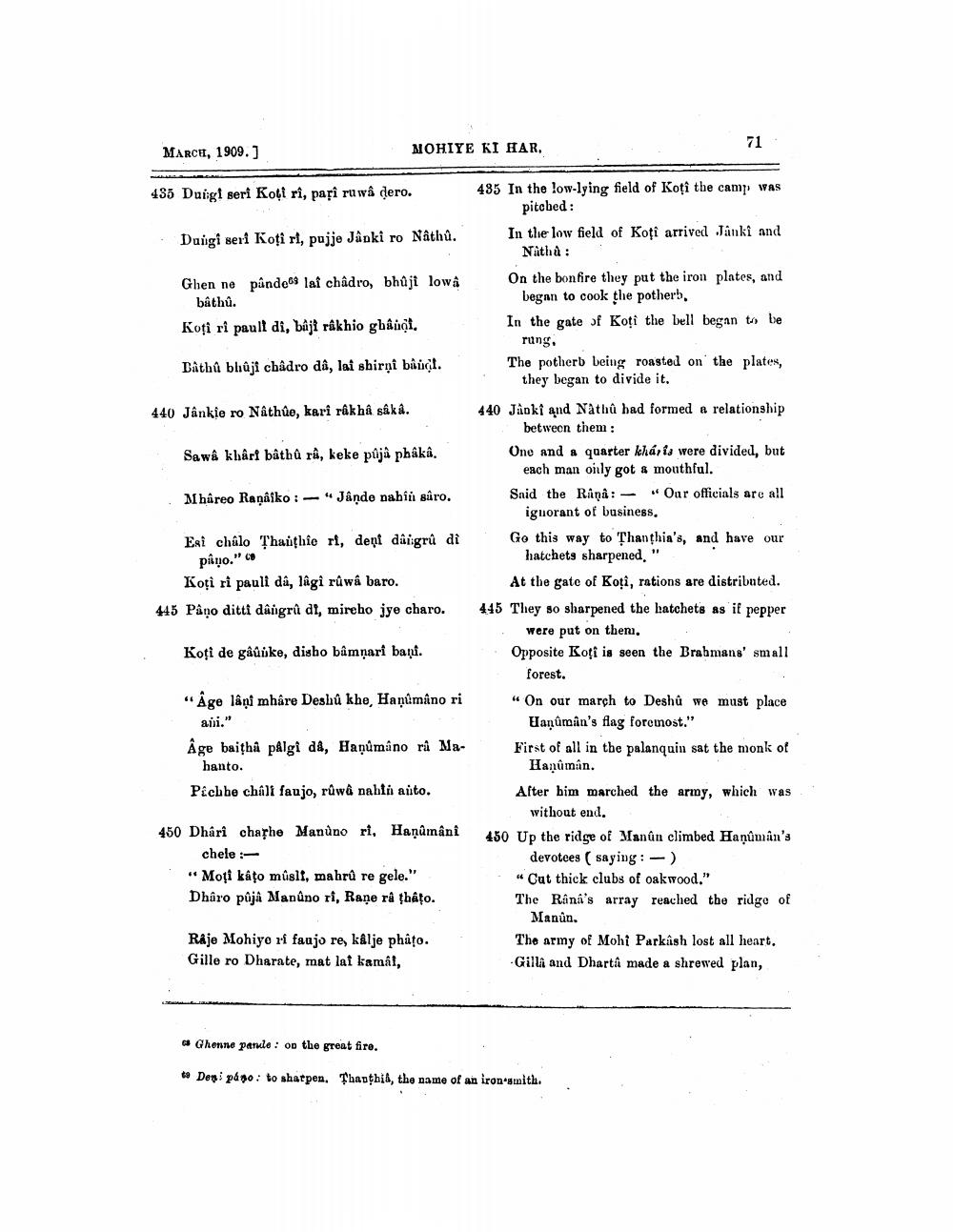________________
MARCHE, 1909.)
MOHIYE KI FAR.
71
435 Duigi seri Koti rî, paşi ruwa dero.
• Daigi seri Koți ri, pajje Janki ro Nathú.
Ghen ne pândes lai châdro, bhuji lowa
bathu. Koți ri pault di, bújt råkhio gbâiqi.
Datha bliaji chadro da, lai shirņi baut.
440 Jánkie ro Nathủe, kari råkhá sâka.
Sawa khart bâthù rá, keke půjâ phaka.
Mhîreo Raņaiko :- "Jände nabii sûro.
Esi châlo Thauthie ri, deņi dârgrû di
pâno." Koți ri pauli da, lagi rûwa baro. 445 Påņo dittf dângru di, mireho jye charo.
485 In the low-lying field of Koți the camp was
pitcbed: In the low field of Koți arrived Janki and
Nithů : On the bonfire they put the iron plates, and
began to cook the potherb. In the gate of Koți the bell began to be
rung. The potherb being roasted on the plates,
they began to divide it. 440 Jáoki and Nathû bad formed a relationship
between them : One and a quarter khárís were divided, but
each man only got a mouthful. Said the Rana: "Our officials are all
iguorant of business. Go this way to Thanthia's, and have our
hatchets sharpened."
At the gate of Koți, rations are distributed. 445 They so sharpened the hatchets as if pepper
were put on them, Opposite Koţi is seen the Brabmans' small
forest. " On our march to Deshû we must place
Haņûmân's flag foremnost." First of all in the palanquin sat the monk of
Hanuman. After bim marched the army, which was
without end. 450 Un the ride of Manûn climbed Hanuman's
devotees ( saying :-) “Cut thick clubs of oakwood." The Râna's array reached the ridge of
Manûn. The army of Mohi Parkash lost all heart. Gilla and Dhartâ made a shrewed plan,
Koţi de gâůüke, disho bûmnari baņi.
"Age lâņi mhâre Deshứ khe, Haņumano ri
aji." Âge baitha palgi da, Haņumano ra Ma
hanto. Pêchbe chali faujo, rûwa nabii auto.
450 Dhári chache Manuno ri, Hanumani
chele :"Moți kato můsit, mahrû re gele." Dharo půjá Manûno ri, Rane ra thâțo.
Raje Mohiyo ri faujo re, kalje phậto. Gille ro Dharate, mat lai kamal,
a Ghenne parule : on the great fire.
to Dori páno: to shatpen. Thanthia, the name of an iron.smith




